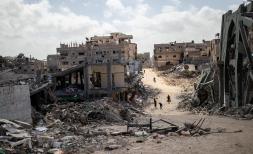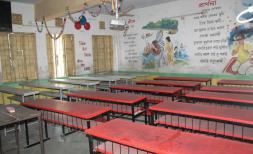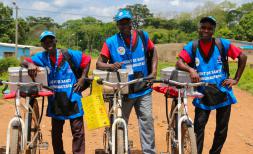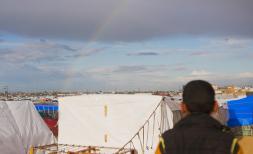States set to adopt first ever international agreement to protect civilians from explosive weapons in populated areas
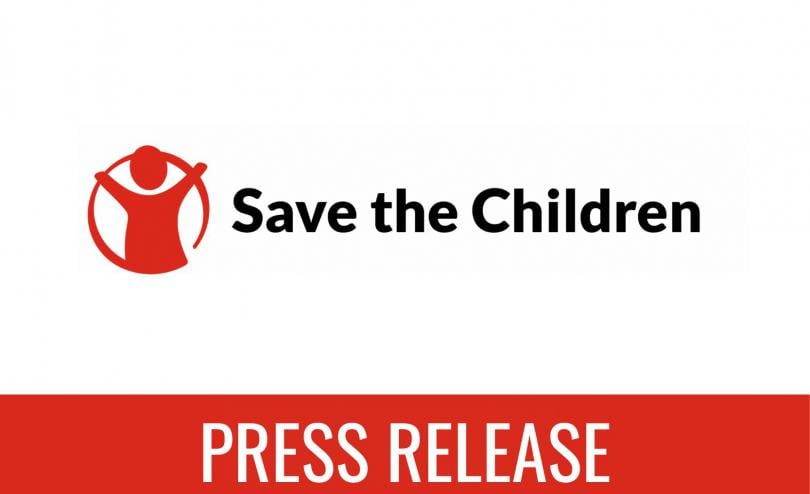
- Over 70 states are expected to sign on to the first international explosive weapons declaration to protect civilians in populated areas, at Dublin Castle, Friday 18 November 2022.
- Campaigners will gather from across the world after a decade-long campaign - a Civil Society Forum on Thursday, 17 November 2022, will plan how the Declaration can help make civilians safer in conflict.
- The Declaration commits states to impose restrictions on the use of explosive weapons in populated areas to reduce civilian harm, and also to assist victims and affected communities.
- When explosive weapons are used in populated areas, 90% of victims are civilians.
Dublin, 17 November 2022 – States will meet at Dublin Castle this Friday, to sign the “Political Declaration on Strengthening the Protection of Civilians from the Humanitarian Consequences Arising from the Use of Explosive Weapons in Populated Areas”. The landmark agreement addresses the widespread civilian suffering and devastation resulting from the bombing and shelling of cities, towns, and other populated areas. The International Network on Explosive Weapons (INEW) welcomes the declaration and calls on all states to sign and implement it.
“This declaration sends a clear message that using explosive weapons in populated areas causes unacceptable civilian suffering and devastation and must stop. It is time for all states to endorse and implement the Declaration to help civilians and their communities during and after conflict”, said Laura Boillot, Coordinator for the International Network in Explosive Weapons (INEW).
The Declaration requires states to impose limits on the use of explosive weapons in populated areas, which is the leading cause of harm to civilians in conflicts today.
It also requires states to assist victims and affected communities both during and after conflict and to address the long-term suffering that stems from the use of explosive weapons in populated areas. Civilians suffer physical and psychological injury. Damage to and destruction of critical civilian infrastructure interferes with heath care, education, and other services. People are forced to flee the towns and cities in which they live and work.
“Nobody thinks about people like me, with no place to hide. This leads to psychological trauma. I was 12, in a wheelchair and terrified, but there was nothing anyone could do. When civilians are bombed it’s not only lives, cities and homes that are lost but also their future. I hope that signing the declaration will not be just a piece of paper – but the beginning of a real change. People suffering in wars around the world need it”, said Nujeen Mustafa, who fled from Aleppo, Syria to Germany.
On Friday, the morning of the conference, participating campaigners and states will unveil a ‘Memorial to the Unknown Civilian’, in recognition of the heavy toll on civilians of bombing and shelling in towns and cities across the world, in the garden of Dublin Castle. Participants will also be able to visit a uniquely constructed replica of a ‘Bombed out School’ in the Castle.
“There is a widespread pattern of harm: when towns and cities are bombed, it is civilians that suffer the most”, said Alma Taslidzan Al-Osta from Humanity and Inclusion.
Ethiopia, Iraq, Palestine (Gaza), Syria, Ukraine, and Yemen are recent examples of affected counties.
Before the conference, campaigners and survivors of armed conflict will also gather at a Global Civil Society Forum in Dublin on Thursday, 17 November, to look at the civilian and humanitarian problems caused by explosive weapons and to ensure the international declaration makes a meaningful impact.
“Children disproportionately suffer the consequences of today’s armed conflicts as city centres are turned into battlefields. This could be a significant step forward to stop the war on children, but the declaration will mean nothing without robust, urgent implementation”, said James Denselow, Head of Conflict at Save the Children, UK.
Explosive weapons were designed for use in open battlefields, and are often deadly choices when used in towns, cities and other areas in which civilians are concentrated.
“Heavy explosive weapons, which are inaccurate, have a wide blast or fragmentation radius, or are delivered in groups, are a deadly choice for civilians”, said Steve Goose from Human Rights Watch. “Use of explosive weapons with such wide area effects should always be avoided in populated areas.”
The text of the Declaration was finalised at the United Nations in Geneva on 17 June 2022, through a diplomatic process led by the government of Ireland.
States that sign the declaration must move quickly to begin the process of implementation. This includes developing policies and practices which limit the use of explosive weapons in populated areas and ensure that the protection of civilians is prioritized in the planning and conduct of military operations.
ENDS
About INEW - https://www.inew.org @explosiveweapon
The International Network on Explosive Weapons (INEW) is an NGO partnership calling for immediate action to prevent human suffering from the use of explosive weapons in populated areas. It comprises more than 40 organisations from across 25 countries. The steering committee includes Action on Armed Violence (AOAV), Article 36, Center for Civilians in Conflict (CIVIC), Humanity and Inclusion (HI), Human Rights Watch, PAX, Norwegian People’s Aid, Oxfam, Women’s International League for Peace and Freedom, Save the Children and SEHLAC
About the Dublin Adoption Conference, Dublin Castle on Friday, 18 November 2022
A new international Declaration on the Protection of Civilians from the Use of Explosive Weapons in Populated Areas opens for states to endorse, at a conference in Dublin, Friday 18 November 2022.
Foreign Minister Simon Coveney will open the meeting, along with other high-level representatives from the International Committee of the Red Cross (ICRC), the United Nations and the International Network on Explosive Weapons, and Syrian armed conflict survivor and activist Nujeen Mustafa.
The use of explosive weapons in populated areas is the leading cause of civilian casualties in contemporary armed conflicts, and the Declaration is the first formal international recognition that this must be addressed urgently and directly. The declaration commits states that endorse it, to take action to implement it by making changes to their national policy and practice, including military policies and operational rules of engagement.
The Declaration was finalised by states on 17 June 2022 at a meeting at the UN in Geneva. It is the culmination of almost three years of diplomatic negotiations led by Ireland involving States, the United Nations, the International Committee of the Red Cross (ICRC) and civil-society organisations, including the International Network on Explosive Weapons (INEW).
The declaration promotes stronger standards to protect civilians from the use of explosive weapons in populated areas and commits states that endorse it, to take action to implement it with changes to their national policy and practice, including military policies and operational rules of engagement.
The declaration should be seen as a starting point—not an end point. A key area will be changing military practice away from the use of explosive weapons in populated areas. There is much more that needs to be done to strengthen the protection of civilians and building stronger standards and driving forward significant changes takes time.
Why strengthen the protection of civilians from the use of explosive weapons in populated areas?
- As the world urbanises, so does conflict. Civilians face bombing and shelling where they live and work. How wars are fought also changed: fighting and bombing often takes place in busy populated centres, with weapons designed for use in open battlefields.
- A century ago, civilians made up 10–15% of casualties in armed conflict. By World War II, this rose to nearly 50%. By the 1990s civilians accounted for 80- 85% of armed conflict casualties, a rising trend which continued/ intensified, into the 21st century (Kaldor, 2013, cited in ODI).
- Today, when explosive weapons are used in populated areas, 90% of victims are civilians - a trend consistently documented for over a decade (AOAV). In the last decade, over 511,000 civilians were reportedly directly killed and / or injured by explosive weapons (AOAV)
- The UN Secretary-General described the use of explosive weapons in populated areas as the “primary killer of civilians in conflict. Attacks and the loss of housing and essential services - combined with leftover contamination from unexploded ordnance - triggers many civilians to flee or leave their homes (see more ICRC).
*******************************************************************************************************************
For further enquiries, please contact:
- Our Global Media Unit gmu@savethechildren.org
- Our media out of hours (BST) contact is media@savethechildren.org.uk / +44(0)7831 650409
We have James Denselow, Head of Conflict at Save the Children, available as a spokesperson.
Please also check our Twitter account @Save_GlobalNews for news alerts, quotes, statements and location Vlogs.
